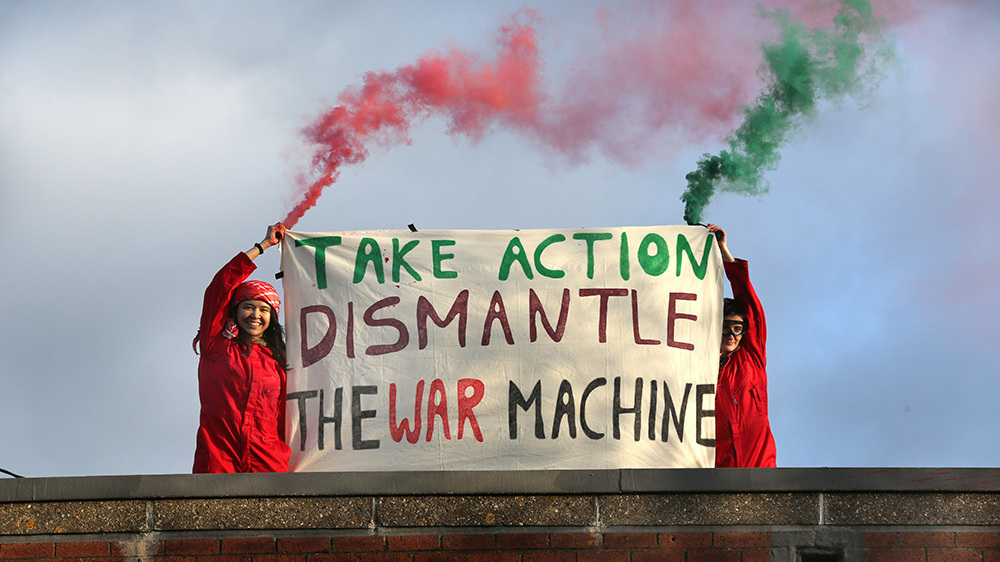Britain’s Court of Appeal has ruled that a full judicial review of the government’s controversial ban on Palestine Action, a direct action group, can proceed next month.
The three-judge panel, led by Lady Chief Justice Sue Carr, dismissed the Home Office’s attempt to block the case, upholding an earlier ruling by Mr. Justice Chamberlain that had granted co-founder Huda Ammori permission to contest the ban.
The ruling marks the first time in British history that a “proscribed” organization has won the right to challenge its designation under the country’s so-called Terrorism Act in open court.
Observers defined the development as a blow to the Home Office and its efforts at, what they denounced as, politically motivated repression. They also hailed the ruling as a major legal and moral victory for civil liberties and the pro-Palestinian movement.
The government’s July 5 “proscription” of Palestine Action, a grassroots network known for its direct, non-violent campaigns against Israeli arms manufacturer Elbit Systems, was widely condemned by civil rights advocates as an attack on freedom of expression and peaceful protest.
The decision effectively placed the movement on the same list as Takfiri terrorist groups like Daesh, criminalizing anyone publicly supporting it.
Since the ban, over 2,000 activists have been arrested, many for nothing more than holding placards stating, “I oppose genocide, I support Palestine Action.”
In its ruling, the Court of Appeal not only dismissed the Home Office’s appeal, but also expanded the scope of the case, adding two new grounds of challenge to the existing ones.
This strengthens the movement’s legal position ahead of the November 25 hearing, which will run for three days and could set a precedent for future civil rights cases.
‘Landmark victory’
Ammori hailed the verdict as a “landmark victory” in the face of the “authoritarian ban.”
“The court of appeal has rightly rejected [the former home secretary] Yvette Cooper’s attempt to block a legal review of her absurdly authoritarian ban – while granting us additional grounds on which to challenge it,” she added.
The activist noted that the decision affirmed the principle that ministers had to be held accountable when they unlawfully curtailed fundamental freedoms.
The judges noted that the Home Office’s preferred route, namely appealing through the “Proscribed Organizations Appeal Commission (POAC),” would not adequately address the plight of hundreds facing prosecution under a potentially unlawful order.
In her written judgment, Carr emphasized that judicial review was a “more expeditious and authoritative” way to determine the legality of the “proscription,” especially given the public importance of the issue.
Chamberlain had earlier ruled that it was “reasonably arguable” that the ban was a disproportionate interference with the right to free speech and protest, and that the home secretary had failed to consult Palestine Action before imposing it – a breach of due process.
A Home Office spokesperson, however, insisted that the organization “remains proscribed” and warned that supporters “will face the full force of the law.”
Legal experts say the outcome of next month’s hearing could redefine the limits of government power to suppress dissent under the guise of national security.
The Elbit Systems, whose British chapter has been the focus of Palestine Action’s activism, is the largest Israeli military manufacturer and produces 85 percent of the Israeli military’s land-based equipment as well as 85 percent of the drones used by the Israeli air force.
The group escalated its acts of protest after October 2023, when the Israeli regime started bringing the Gaza Strip under a full-scale war of genocide, which has so far claimed the lives of around 68,000 Palestinians, mostly women and children.
[ SOURCE: PRESS TV and NEWS AGENCIES ]

